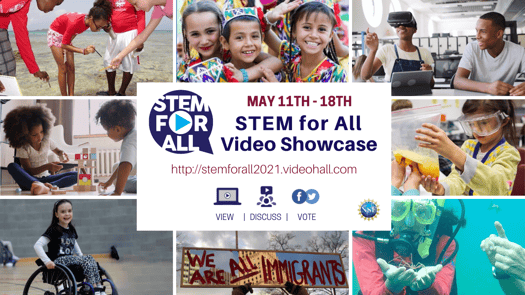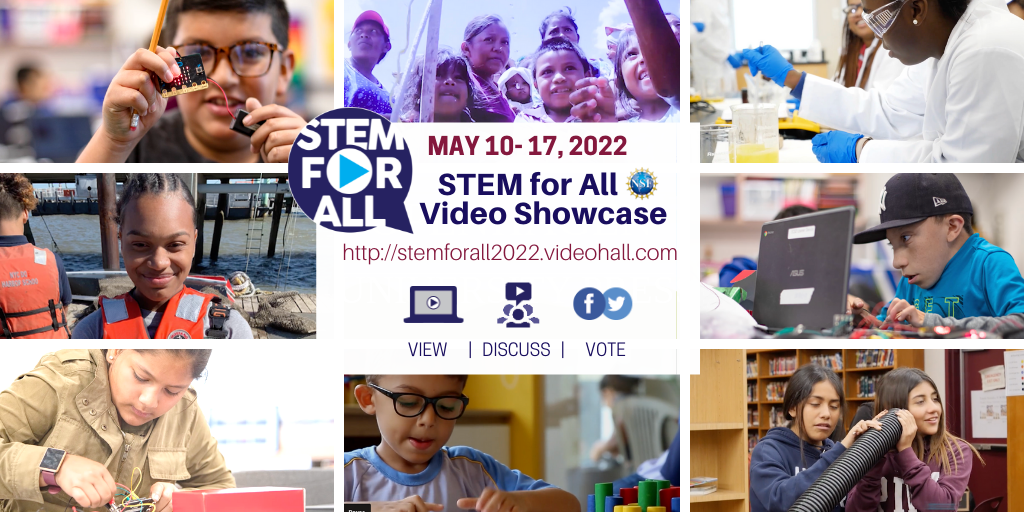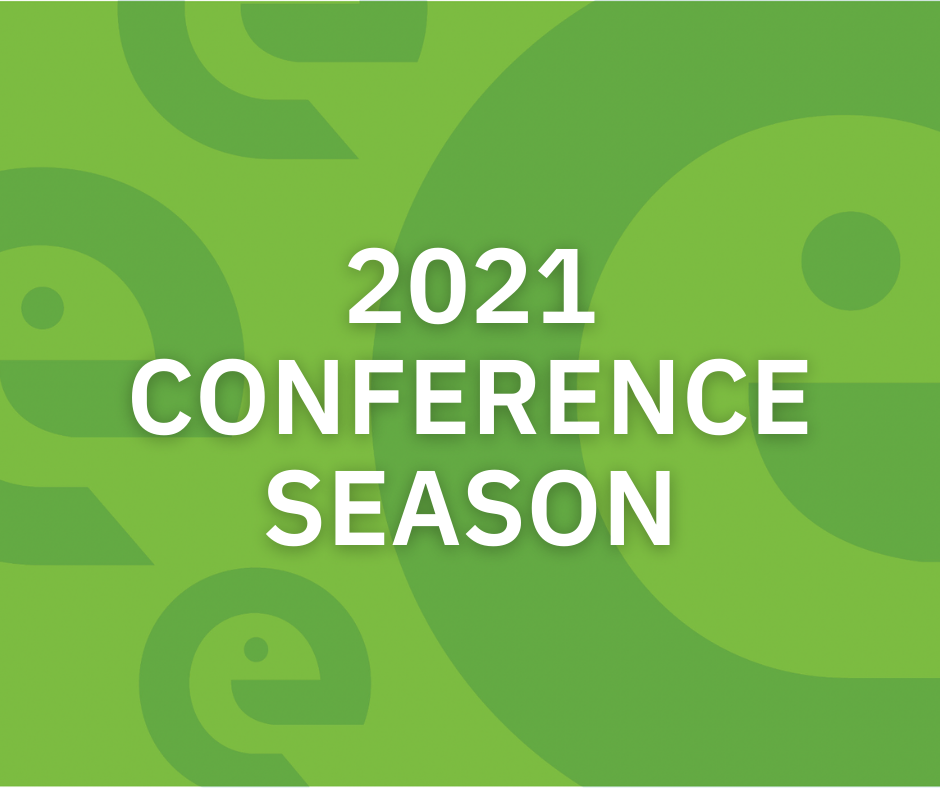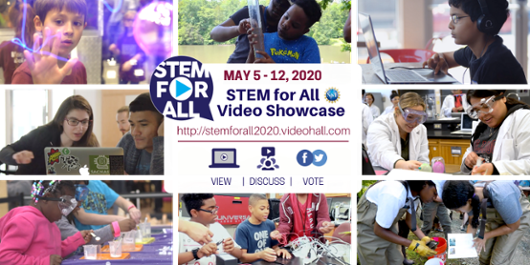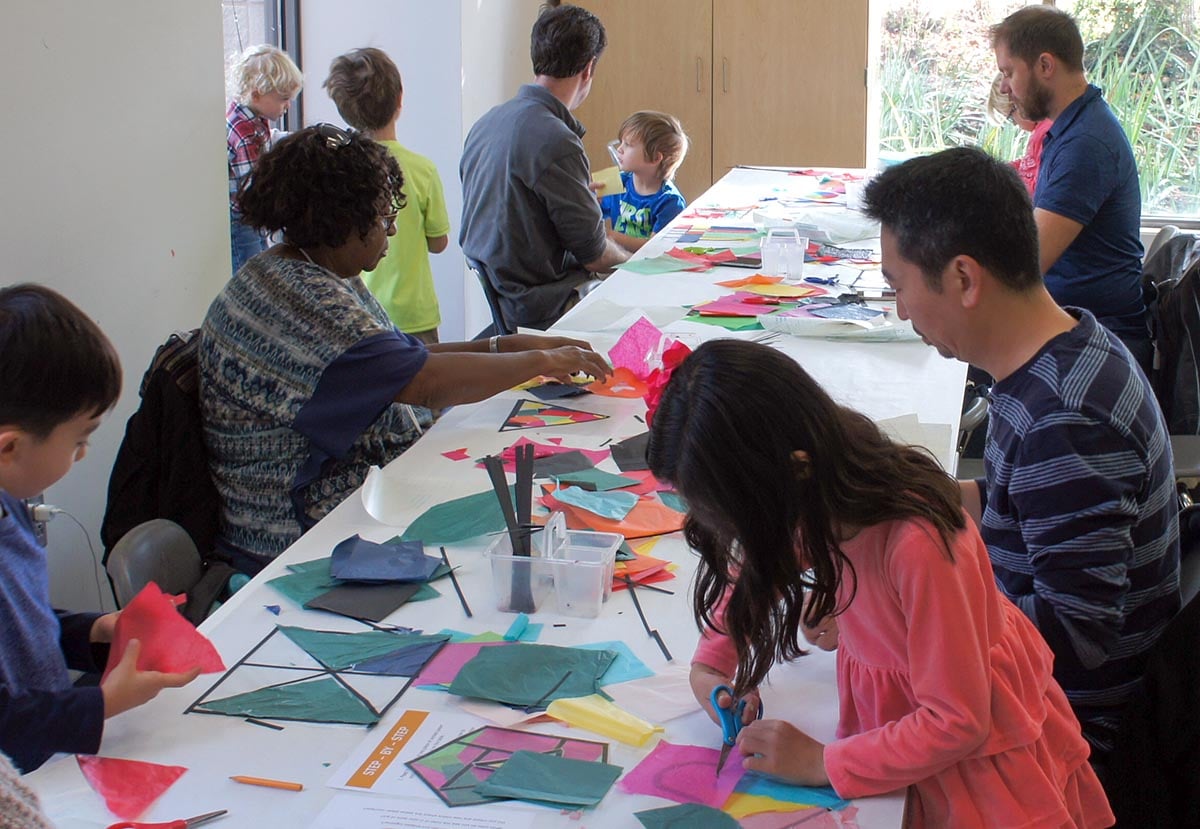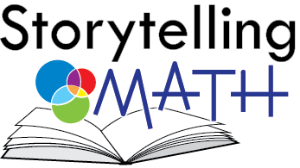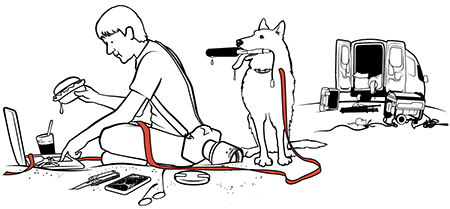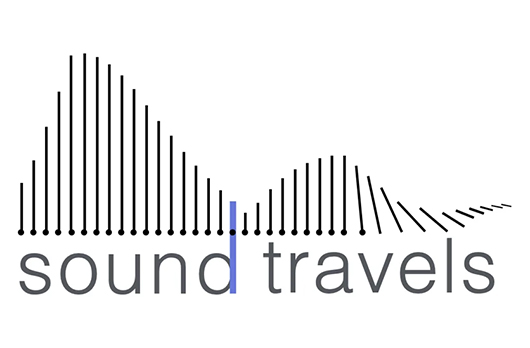TERC Blog
2021 STEM for All Video Showcase
TERC Hosts 7th Annual STEM for All Video Showcase: May 11-18, 2021
287 projects funded by NSF and other federal agencies will showcase three-minute videos of their innovative work related to STEM teaching and learning in formal and informal environments. This is a great opportunity for you to network, find new resources, potential collaborators, and share your expertise!
Anytime during this free, week long virtual event, we invite you to:
 |
 |
 |
| Browse 3-min videos highlighting federally-funded STEM education initiatives. | Join the conversations, lend your perspective, and network with presenters and other leaders in the field. | Vote for your favorites through Facebook and Twitter. Spread the word! |
TERC's STEM for All Videos
TERC is proud to have our staffs' amazing work featured in the Video Showcase this year. Check out the videos and join the conversations with the researchers who made the films!
INFACT: Including Neurodiversity in Foundational and Applied CT
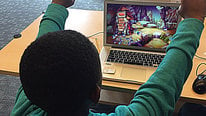
Lead Presenter: Jodi Asbell-Clarke
Co-Presenters: Ibrahim Dahlstrom-Hakki, Teon Edwards, Shuchi Grover, Maya Israel, Fengfeng Ke, Kelly Paulson, David Weintrop
Abstract: This video describes a work in progress from a current US Dept of ED EIR grant. INFACT brings together designers and research in Computational Thinking education, cognitive science, and data mining to build adaptive scaffolds for executive function within CT learning activities for elementary and middle school learners (grades 3-8). INFACT is a set of game-based interactives along with coding and robotic activities, and offline conceptual and hands-on activities; all delivered with differentiated scaffolds for neurodiverse learners.
Funding: U411C190179 US Dept of ED EIR grant
![]()
Co-Designing a VR STEM Mystery Game w/ Neurodiverse Learners

Lead Presenter: Teon Edwards
Co-Presenters: Zac Alstad, Ibrahim Dahlstrom-Hakki, James Larsen
Abstract: To study and model how virtual reality (VR) can be used to increase access to and broaden participation in STEM learning, we are designing and researching a VR STEM-based mystery game for and with neurodiverse learners, particularly ones with sensory, attention, and social (anxiety) differences.
The game, Mission to Europa Prime, is set on an abandoned space station on Europa, a moon of Jupiter suspected to have an ocean under its icy crust and a prime candidate for hosting life; players must explore, make discoveries, solve puzzles, and figure out the ultimate mysteries.
Designers and researchers from EdGE at TERC and interns from Landmark College, a post-secondary institute for learners with autism and other learning differences, are currently co-designing the game's story, puzzles, and user interfaces. The stakeholders—neurodiverse learners—thus have a voice in the design process, embracing “nothing about us without us,” which has emerged as a central message within the neurodiversity movement, as well as other similar movements for equity across marginalized populations (Charlton, 2000). This video addresses the importance of the co-design process.
Funding: NSF Award: 2005447
![]()
Rethinking Our Assumptions about Storybooks and STEM

Lead Presenter: Scott Pattison
Co-Presenters: Smirla Ramos Montañez, Gina Svarovsky
Abstract: In December of 2019, TERC and the University of Notre Dame convened a group of 21 early childhood reading, family learning, and informal STEM education experts to explore the role of children’s fiction books as a tool for supporting STEM learning with young children and their families. Participants included educators and researchers from across the country representing a broad range of learning contexts, professional roles, audience focus areas, and STEM discipline expertise. Through the discussions, the group developed a series of recommendations for future work, with a particular focus on integrating diversity and equity perspectives into the use of storybooks for family STEM learning.
Funding: NSF Award: 1902536
![]()
Bringing Out the Math in Making
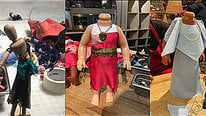
Lead Presenter: Andee Rubin
Co-Presenter: Scott Pattison
Abstract: The last decade has seen a proliferation of out-of-school environments that offer making and tinkering experiences. Enthusiastic participants in these contexts are often engaging in mathematical reasoning without realizing it—and thus may not consider themselves competent mathematical thinkers. The central thesis of the Math in the Making initiative is that this situation represents a missed opportunity to significantly expand the range of people who find math enjoyable, consider themselves competent at mathematical reasoning, and are interested in pursuing hobbies and careers that might involve math.
In this project, which built on the Math in the Making workshop in 2016, TERC partnered with the New York Hall of Science (NYSCI) and the Children's Museum of Pittsburgh (CMP) to prototype approaches to highlighting the mathematics in making, develop a set of design principles for enhancing the salience of the math while preserving the integrity of the making experience, and consider how best to raise visitors' awareness of their own mathematical competence. When the pandemic curtailed visitorship to NYSCI and CMP, staff at both institutions pivoted to different models of engagement with families, both of which provided unexpected opportunities to expand our research agenda and forge new connections with the community.
Funding: NSF Award: 1811395
![]()
TERC Co-Presenters
Fearless Integration: Culturally Relevant CS in K5 Education
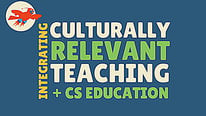
Lead Presenter: Anita Crowder
Co-Presenters: Debra Bernstein, Jennie Chiu, Dwyane Cormier, Michelle Gay, Sheila Mosby, Betsy Seymour
Abstract: "CS For and By Teachers: An Integrative Approach for 3rd-5th Grade Classrooms" focuses on two central challenges in K-5 computer science education: (1) teacher capacity to access and implement integrated Computer Science curricula materials and (2) equity in STEM learning opportunities for diverse student populations.
This project engages a 13 member research-practitioner partnership (RPP) of K-5 educators and university and nonprofit researchers. The RPP will develop and test a training model to support elementary teachers in creating and continually adapting their own culturally relevant lesson plans that integrate computer science and computational thinking skills across core subjects. Teachers will leave with the skills to examine and utilize the cultural assets within their classroom while integrating CS content into math, social studies, science, and English language arts.
Funding: NSF Award: 2031258
![]()
Integrating Computer Science and Social Studies in MS

Lead Presenter: Bryan Wallace
Co- Presenters: Debra Bernstein, Michael Berson, PhD
Abstract: "Reaching Across the Hallway: An Interdisciplinary Approach to Supporting Computer Science in Rural Schools" is in its first project year. Our goal is to design and develop a professional development model that supports 5th-8th grade teachers in integrating culturally relevant computer science into their social studies classrooms. This discovery research project will develop, test, and refine a "train-the-trainer" professional development model for rural teacher-leaders in an effort to broaden rural students' participation in computer science.
The professional development content will be generated based on input from teachers and administrators from five rural school divisions in three unique regions of Virginia, and vetted by an Advisory Board of nationally-recognized content experts.
Funding: NSF Award: 2010256

